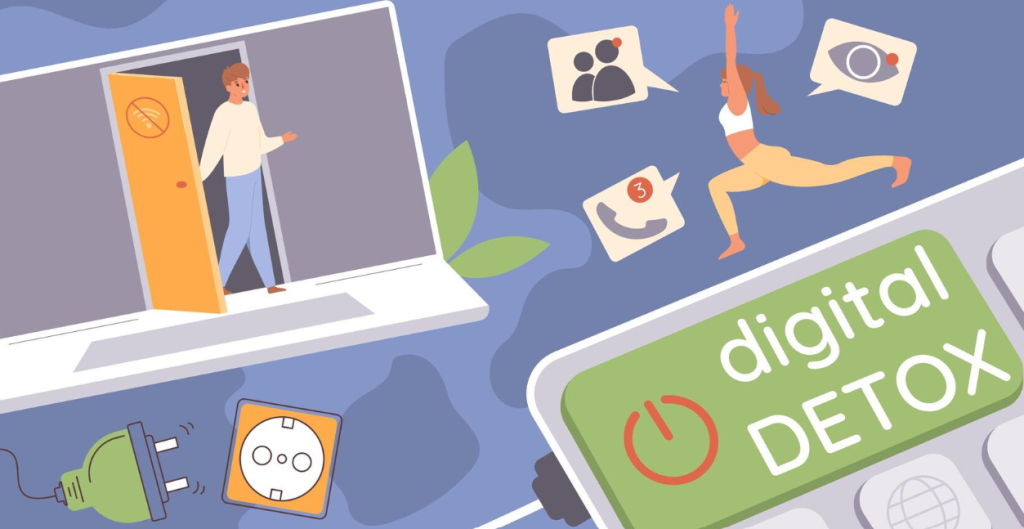Mental health is a crucial aspect of overall well-being, yet it often remains shrouded in stigma and misunderstanding. Despite growing conversations around the topic, many people still hesitate to seek help or openly discuss their struggles due to fear of judgment. Raising mental health awareness is not just about spreading information—it’s about fostering empathy, breaking down barriers, and creating a world where everyone feels safe to prioritize their mental well-being. Here are some powerful ways to boost mental health awareness and dismantle the stigma surrounding it.
Educate Yourself and Others About Mental Health
One of the most effective ways to combat stigma is through education. Misconceptions about mental health often arise from a lack of understanding. By learning about common mental health conditions, their symptoms, and treatments, you can help dispel myths and foster a more supportive environment.
Key Areas to Focus On:
- Common mental health disorders: Depression, anxiety, bipolar disorder, PTSD, and others affect millions worldwide.
- Signs and symptoms: Recognizing early warning signs can lead to timely intervention.
- Treatment options: Therapy, medication, lifestyle changes, and support networks play vital roles in recovery.
Share what you learn with friends, family, and colleagues. Social media, blogs, and community workshops are excellent platforms to spread accurate information.
Encourage Open Conversations
Silence perpetuates stigma. Encouraging open, honest discussions about mental health can normalize these conversations and make it easier for people to seek help. Here’s how you can contribute:
Ways to Foster Dialogue:
- Share personal experiences: If you’re comfortable, talking about your own mental health journey can inspire others to do the same.
- Listen without judgment: Sometimes, people just need a safe space to express their feelings.
- Use inclusive language: Avoid stigmatizing terms and instead use words that promote understanding and compassion.
Creating a culture where mental health is discussed as openly as physical health can significantly reduce stigma.
Support Mental Health Initiatives and Organizations
Many organizations work tirelessly to promote mental health awareness and provide resources for those in need. Supporting these initiatives amplifies their impact and helps reach more people.
How You Can Help:
- Donate or volunteer: Many nonprofits rely on community support to fund programs and services.
- Participate in awareness campaigns: Events like Mental Health Awareness Month or World Mental Health Day raise visibility.
- Advocate for policy changes: Push for better mental health policies in workplaces, schools, and governments.
By aligning with these efforts, you contribute to a larger movement dedicated to mental health advocacy.
Practice Self-Care and Encourage Others to Do the Same
Mental health awareness starts with self-care. Prioritizing your well-being sets a positive example and reinforces the importance of mental health.
Self-Care Strategies:
- Set boundaries: Learn to say no and protect your energy.
- Engage in activities you enjoy: Hobbies and relaxation techniques can reduce stress.
- Stay connected: Maintain relationships with supportive friends and family.
Encourage those around you to adopt self-care practices as well. Small, consistent actions can lead to significant improvements in mental well-being.
Challenge Stigma When You See It
Stigma often thrives in silence. When you encounter harmful stereotypes or discriminatory behavior, speak up. Challenging stigma in everyday situations can create a ripple effect of change.
Actions to Take:
- Correct misinformation: Politely address myths or misconceptions when you hear them.
- Stand up against discrimination: Advocate for fair treatment of individuals with mental health conditions.
- Lead by example: Show compassion and understanding in your interactions.
Every small effort to challenge stigma contributes to a more inclusive and supportive society.
Mental health awareness is not a one-time effort but an ongoing commitment. By educating ourselves, fostering open conversations, supporting advocacy, practicing self-care, and challenging stigma, we can create a world where mental health is prioritized and celebrated. Together, we can break the silence and build a future where everyone feels empowered to seek the help they deserve.

